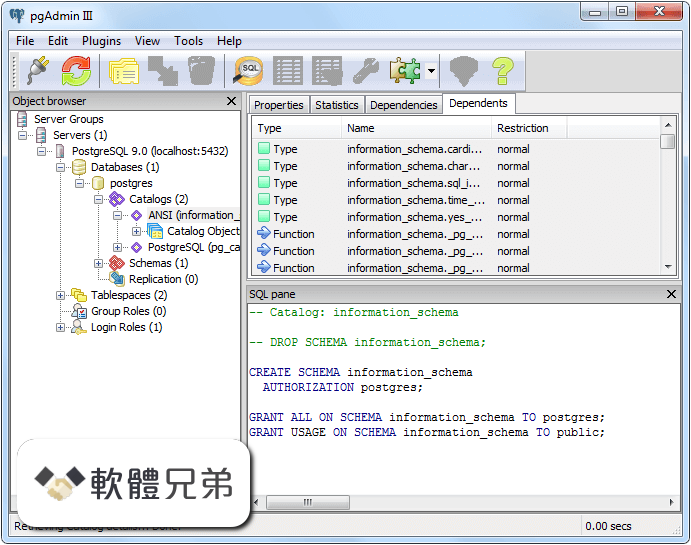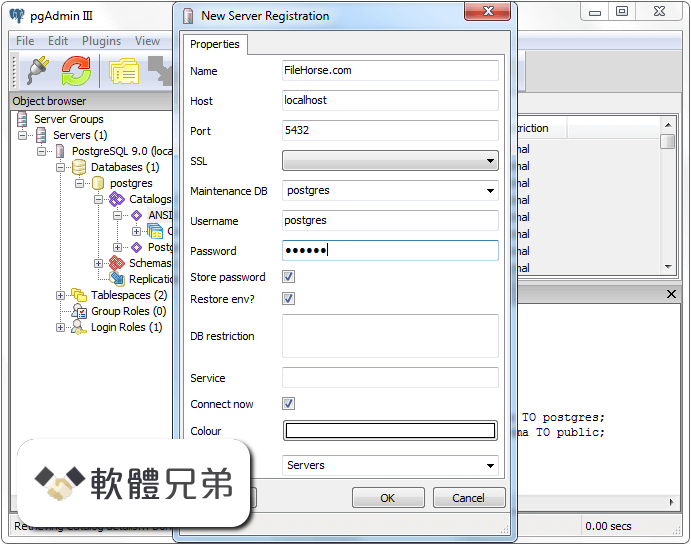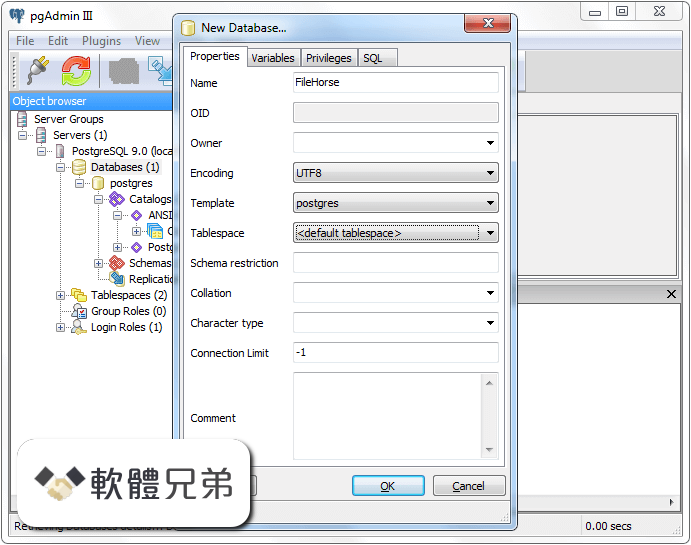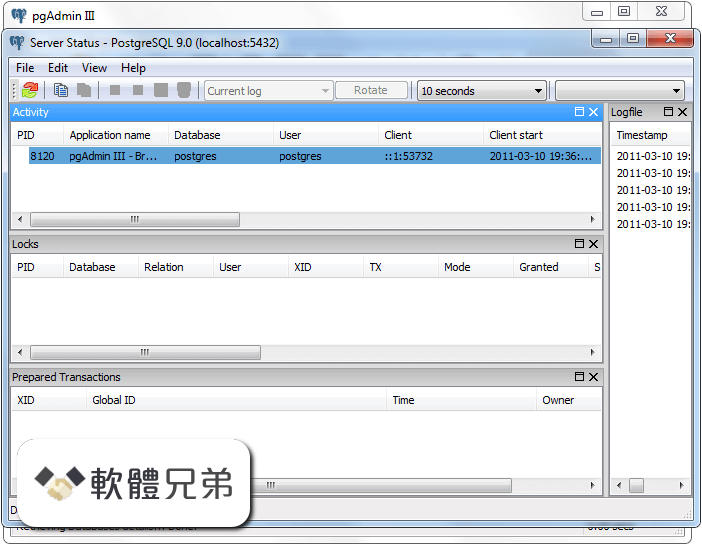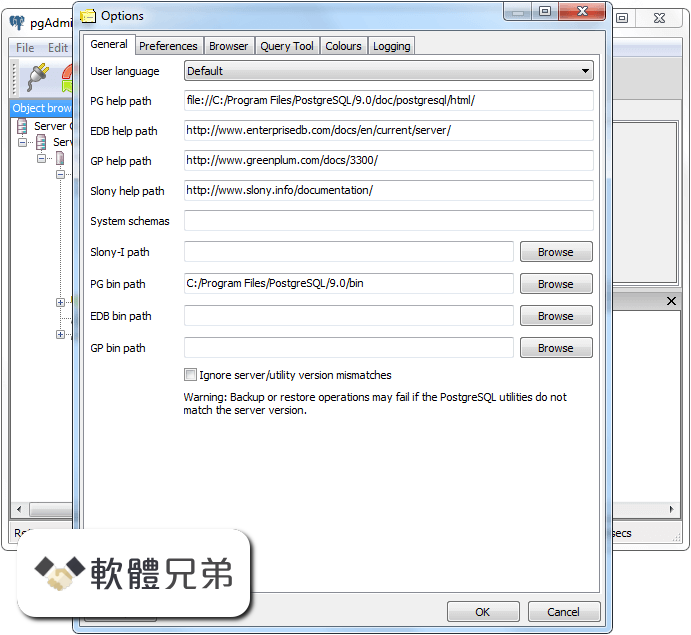|
What's new in this version: Release summary:
- 2.13 improves Scala in the following areas:
- Collections: Standard library collections have been overhauled for simplicity, performance, and safety. This is the centerpiece of the release.
- Standard library: Future is faster and more robust. Elsewhere, useful classes and methods have been added.
- Language: Literal types, partial unification, by-name implicits, more.
- Compiler: 5-10% faster, deterministic output, improved optimizer.
Collections redesign:
- Standard library collections have been overhauled for for simplicity, performance, and safety.
- This is the centerpiece of the release.
- Most ordinary code that used the old collections will continue to work as-is, except as detailed below.
The most important collections changes are:
- Simpler method signatures
- No more CanBuildFrom. Transformation methods no longer take an implicit CanBuildFrom parameter.
- The resulting library is easier to understand (in code, Scaladoc, and IDE code completion).
- It also makes user code compile faster.
- A new BuildFrom implicit is used in a handful of places that need it.
- Simpler type hierarchy
- No more Traversable and TraversableOnce.
- They remain only as deprecated aliases for Iterable and IterableOnce.
- Parallel collections are now a separate module.
- As a result, GenSeq, GenTraversableOnce, et al are gone.
- Immutable scala.Seq
- Seq is now an alias for collection.immutable.Seq
- Before, it was an alias for the possibly-mutable collection.Seq.
- This also changes the type of varargs in methods and pattern matches.
- Arrays passed as varargs are defensively copied. (#6970)
- Simplified views that work
- collection.Views have been vastly simplified and should now work reliably.
- New, faster HashMap/Set implementations
- Both immutable (d5ae93e) and mutable (#7348) versions were completely replaced.
- They substantially outperform the old implementations in most scenarios.
- The mutable versions now perform on par with the Java standard library's implementations.
- New concrete collections
- immutable.LazyList replaces immutable.Stream. Stream had different laziness behavior and is now deprecated. (#7558, #7000)
- immutable.ArraySeq is an immutable wrapper for an array; there is also a mutable version
- mutable.CollisionProofHashMap guards against denial-of-service attacks (#7633)
- mutable.ArrayDeque is a double-ended queue that internally uses a resizable circular buffer (scala/collection-strawman#490)
- New abstract collection type SeqMap
- immutable.SeqMap provides immutable maps that maintain insertion order. (#7954)
- Implementations: VectorMap (#6854) and TreeSeqMap (#7146) (in addition to the already existing ListMap).
Additional collections changes:
- New to(Collection) method
- Replaces old to[Collection] method.
- The argument is the companion object of the desired collection type, for example .to(Vector).
- The API change enables support for all collection types (including Map, BitSet, et al).
- No more collection.breakOut
- It required CanBuildFrom, which no longer exists.
- To avoid constructing intermediate collections, use .view and .to(Collection) instead.
- List and Vector are safer
- They now offer safe publication under the Java Memory Model, using releaseFence (#6425)
- Java interop has moved
- Extension methods for Scala are now in scala.jdk
- Explicit converters for Java are in scala.jdk.javaapi
- The reorganization centralizes all to-and-from-Java converters, including both collection and non-collection types, in a single package.
- Collection serialization has changed
- Collections now use the the serialization proxy pattern uniformly whenever possible. (#6676, #7624, scala-dev#562, sbt/sbt#89)
- In some classloading environments, notably sbt's non-forked test execution, code changes may be needed.
- Added .unfold
- This allows constructing a collection or iterator from an initial element and a repeated Option-returning operation, terminating on None.
- This was added collection companion objects and to Iterator (#6851)
- Added .lengthIs/.sizeIs and .sizeCompare
- These allow fluent size comparisons without traversing the whole collection (#6950, #6758)
- Examples: xs.sizeIs < 10, xs.sizeIs == 2
- Improved support for extension methods on collections
- Offered via IsIterable et al (#6674)
- Error-prone Map methods deprecated
- Deprecated .filterKeys and .mapValues (#7014)
- Instead, use the new methods of the same names on MapView (e.g. .view.filterKeys)
- Added .lazyZip
- Together with .zip on views, this replaces .zipped (now deprecated). (scala/collection-strawman#223)
- Deprecated symbolic methods with multiple arguments
- This is because such methods may be disallowed entirely in a future Scala (#6719)
- Adding custom collections and operations works very differently
- See documentation links below.
To learn more about the new APIs and how to adapt your code, consult:
- Scala 2.13's Collections
- Intro for newcomers. Skip if the collections from Scala 2.12 and earlier are already familiar to you.
- The Architecture of Scala 2.13 Collections
- Implementing Custom Collections (Scala 2.13)
- Adding Custom Collection Operations (Scala 2.13)
- Migrating a Project to 2.13's Collections.
- This document describes the main changes for collection users that migrate to Scala 2.13 and shows how to cross-build on Scala 2.11/12/13.
- scala-collection-compat
- This new module provides shims for cross-building on Scala 2.11/12/13.
- It also provides two sets of Scalafix rewrites: one for cross-building, one for moving to 2.13 only.
- We welcome assistance in continuing to expand and improve these documents.
Concurrency:
Futures were internally redesigned, with these goals:
- provide expected behavior under a broader set of failure conditions
- provide a foundation for increased performance
- support more robust applications
Details:
- Updated and revised our Future and Promise implementation. (#6610, #7663)
- Among other changes, handling of InterruptedException and RejectedExecutionException is improved.
- Made the global ExecutionContext “batched”. (#7470)
- Added synchronous ("parasitic") ExecutionContext. (#7784)
- Standard library: additions:
- Integrated Java interop (#7987)
- The old scala-java8-compat module is now part of the standard library. (#7458)
- This provides converters for options, function types and Java streams.
- (As mentioned above, collection converters such as JavaConverters were moved to fit into the new scheme.)
- new: scala.util.Using
- This provides a simple form of automatic resource management. (#6907)
- new: .toIntOption, et al
- These new extension methods on String are provided by StringOps.
- They parse literals and efficiently reject invalid input without throwing exceptions. (#6538)
- Examples: "12".toIntOption => Some(12), "12.3".toIntOption => None, "12.3".toDoubleOption => Some(12.3)
- new: named Product elements
- Case classes and other Products now have productElementNames and productElementName methods. (#6972)
- new: .withRight, .withLeft
- These methods on Left and Right allow upcasting the other type parameter (#7011, #7080)
- Example: Left(3).withRight[String] has type Either[Int, String] without having to write Int
- new: Ordering.Double.TotalOrdering, Ordering.Float.TotalOrdering
- The old orderings remain available at: Ordering.Double.IeeeOrdering, Ordering.Float.IeeeOrdering
- Example: List(2.0, 1.0).sorted is now ambiguous without specifying an ordering
- new: pipe and tap
- These chaining operations are available via import scala.util.chaining._. (#7007)
- Example: 3.pipe(_ * 5) evaluates to 15
- Example: 9.tap(println) first prints 9, then returns it
Standard library: changes:
- Library fits in compact1 profile
- This reduces deployment footprint for Scala applications. (#6164, scala/bug#10559)
- Option extends IterableOnce
- This improves type inference when calling an overloaded flatMap. (#8038)
Standard library: deprecations and removals:
- String-building using + with a non-String type on the left (aka any2stringadd) is now deprecated (#6315, #6755)
- PartialFunction.fromFunction replaces PartialFunction.apply (#6703)
- Right projections on Either are now deprecated (#6682, #8012)
- The following modules are no longer included in the distribution: scala-xml, scala-parser-combinators, scala-swing.
- They remain available from Maven Central.
- Assorted deprecated methods and classes throughout the standard library have been removed entirely.
Language changes:
- 2.13 is primarily a library release, not a language/compiler release. Regardless, some language changes are included:
Features:
- Literal types
- Literals (for strings, integers, and so on) now have associated literal types. (#5310)
- See the original proposal, SIP-23, for motivation and details.
- The compiler will provide instances of a new typeclass scala.ValueOf[T] for all singleton types T.
- The value of a singleton type can be accessed by calling method valueOf[T]. Example: val one: 1 = valueOf[1]
- Partial unification on by default
- Improves type constructor inference, fixes SI-2712.
- We recommend this [great explanation of this feature] (https://gist.github.com/djspiewak/7a81a395c461fd3a09a6941d4cd040f2).
- This feature is no longer considered experimental (#5102)
- The compiler no longer accepts -Ypartial-unification.
- By-name implicits with recursive dictionaries
- This extends by-name method arguments to support implicit (not just explicit) parameters.
- This enables implicit search to construct recursive values.
- The flagship use-case is typeclass derivation.
- Details: see the by-name implicits SIP, #6050, #7368
- Underscores in numeric literals
- Underscores can now be used as a spacer. (#6989)
- Example: 1_000_000
Experimental features:
- Macro annotations
- There is no more "macro paradise" compiler plugin for 2.13.
- Instead, macro annotations are handled directly by the compiler.
- Macro annotations are enabled with the -Ymacro-annotations flag. #6606
- Macro annotations remain experimental.
Deprecations:
- Procedure syntax deprecated
- Deprecated: def m() { ... }) #6325
- Use instead: def m(): Unit = { ... }
- View bounds deprecated
- Deprecated: A <% B (#6500)
- Use instead: (implicit ev: A => B)
Adjustments:
- Explicit imports now shadow locally defined identifiers. (#6589)
- This is a breaking change.
- Better typing for overloaded higher-order methods (#6871, #7631)
- This change was a key enabler for the new collections design.
- Rework unification of Object and Any in Java/Scala interop (#7966)
- Name-based pattern matching has changed to enable immutable Seq matches (#7068)
- Automatic eta-expansion of zero-argument methods is no longer deprecated (#7660)
- Improve binary stability of extension methods (#7896)
- Macros must now have explicit return types (#6942)
- Mixin fields with trait setters are no longer JVM final (#7028)
- In addition, object fields are now static (#7270)
- Support implicitNotFound on parameters (#6340)
- Disallow repeated parameters except in method signatures (#7399)
- x op () now parses as x.op(()) not x.op() (#7684)
Compiler:
- Deterministic, reproducible compilation
- The compiler generates identical output for identical input in more cases, for reproducible builds. (scala-dev#405)
- Optimizer improvements
- Operations on collections and arrays are now optimized more, including improved inlining. (#7133)
And:
- Scaladoc supports setting canonical URLs (#7834)
- This helps search engines identify the most relevant/recent version of a page when several versions are available.
- Compiler suggests possible corrections for unrecognized identifiers (#6711)
- Example: List(1).sizzle => value sizzle is not a member of List[Int], did you mean size?
- Added -Yimports for custom preamble imports. (#6764)
- Example: -Yimports:x,y,z means x, y, and z are root imports of the form: import x._ { import y._ { import z._ { ... } } }
- The scala-compiler JAR no longer depends on scala-xml (#6436)
Plus, changes to compiler options:
- Replaced -warn-option with -Woption (#7908)
- Promoted -deprecation to -Xlint:deprecation (#7714)
- Deprecated -Xfuture (#7328)
- Instead, use e.g. -Xsource:2.14
- Removed -Xmax-classfile-length
- It's hard-coded to 240 now (#7497)
Scripting and environment:
- The script runner (scala Script.scala) no longer uses the fsc compilation daemon by default. (#6747)
- The daemon was not reliable and will likely be removed entirely from a future release.
- JEP 293 style long command-line options are now supported (#6499)
- The REPL has undergone an internal refactoring to enable future improvements (#7384)
Compiler performance:
We invested heavily in compiler speedups during the 2.13 cycle, but most of that work actually already landed in the 2.12.x series, with more to - come in 2.12.9.
- In addition, the compiler performance in 2.13 is 5-10% better compared to 2.12, thanks mainly to the new collections. See performance graph.
- Also, certain kinds of code now compile much faster because the compiler aggressively prunes polymorphic implicits during search (#6580).
Compatibility:
- Like Scala 2.12, the 2.13 series targets Java 8, minimum. Both 2.12 and 2.13 also work on later JDKs such as JDK 11; see our JDK Compatibility - Guide.
Although Scala 2.11, 2.12, and 2.13 are mostly source compatible to facilitate cross-building, they are not binary compatible. This allows us to - keep improving the Scala compiler and standard library.
- All 2.13.x releases will be fully binary compatible with 2.13.0, in according with the policy we have followed since 2.10.
- The list of open-source libraries released for Scala 2.13 is growing quickly!
Projects built with sbt must use at least sbt 1.2.8 (or 0.13.18) to use Scala 2.13. To move to 2.13, bump the scalaVersion setting in your - existing project.
- Scala also works with Maven, Gradle, and other build tools.
Scala 2.13.0 相關參考資料
Releases · scalascala · GitHub
Contribute to scala/scala development by creating an account on GitHub. ... since this release. We are delighted to announce the availability of Scala 2.13.0!
https://github.com
Scala 2.13.0 is now available! | The Scala Programming ...
We are delighted to announce the availability of Scala 2.13! The 2.13.0 release improves Scala in the following areas: Collections: Standard ...
https://www.scala-lang.org
Scala 2.13.0 release - Announcements - Scala Contributors
Here's the current plan for 2.13.0. 2.13.0 will include two fixes we believe are safe, without an additional RC: ...
https://contributors.scala-lan
Scala 2.13.0 | The Scala Programming Language
You can find the installer download links for other operating systems, as well as documentation and source code archives for Scala 2.13.0 below.
https://www.scala-lang.org
Scala 2.13.0-M1 | The Scala Programming Language
You can find the installer download links for other operating systems, as well as documentation and source code archives for Scala 2.13.0-M1 below.
https://www.scala-lang.org
Scala 2.13.0-M2 | The Scala Programming Language
You can find the installer download links for other operating systems, as well as documentation and source code archives for Scala 2.13.0-M2 below.
https://www.scala-lang.org
Scala 2.13.0-M3 | The Scala Programming Language
You can find the installer download links for other operating systems, as well as documentation and source code archives for Scala 2.13.0-M3 below.
https://www.scala-lang.org
Scala 2.13.0-M5 | The Scala Programming Language
You can find the installer download links for other operating systems, as well as documentation and source code archives for Scala 2.13.0-M5 below.
https://www.scala-lang.org
Scala 2.13.0-RC1 is now available! | The Scala Programming ...
Scala 2.13.0-RC1 further refines and polishes the new collections API, among other improvements. If no major problems are found in this ...
https://www.scala-lang.org
Scala 2.13.0-RC1 | The Scala Programming Language
You can find the installer download links for other operating systems, as well as documentation and source code archives for Scala 2.13.0-RC1 below.
https://www.scala-lang.org
|
